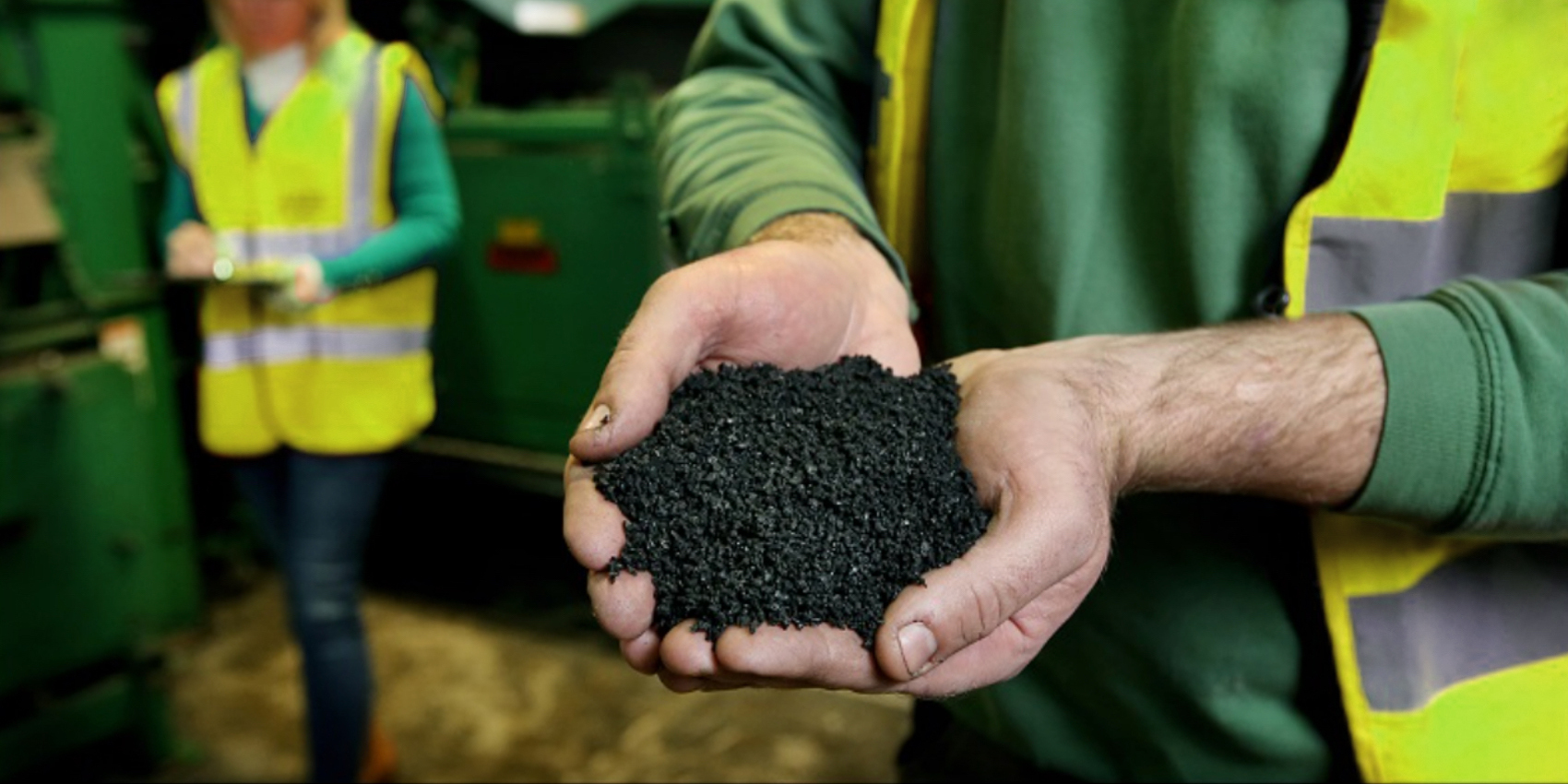Recycling and recovering waste into new resources
We’re repurposing waste into commodities, reducing what’s exported overseas, and minimising what goes to landfill.

Guiding Ireland toward a circular economy
Economies are changing how they produce and consume goods. In a ‘linear economy’, goods are made, used, and disposed of, which creates waste that pollutes the environment. We’re helping Ireland move to a ‘circular economy’, where goods are made, used, reused and remade. This reduces landfill and recycles waste into a resource that can be used for something new.
Circular economies drive economic growth and environmental sustainability.

Giving waste materials a new purpose
We turn plastics, construction waste and more into new materials. Organic waste is transformed into high quality compost, and tyres are converted into the rubber granules used in football pitches, playground surfaces and horticultural bark.
Repurposing thousands of tonnes of waste every year.

Turning what can’t be recovered into energy
Waste that can’t be composted, recycled or recovered into new materials is called residual waste. This leftover waste is shredded, dried and turned into fuel, called residual derived fuel (RDF). It’s then sent to specialist incinerator facilities in Europe that burn it to create energy. Instead of sending this material to landfill, it’s used as a lower-carbon alternative to fossil fuels. The energy created by burning RDF is turned into hot water and electricity for homes and businesses.

